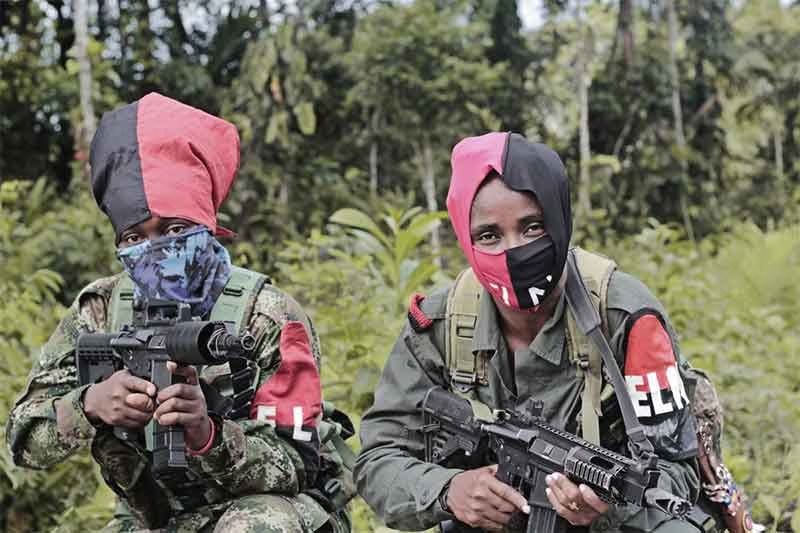
How do soldiers killing each other solve the world’s problems? How can human beings shooting, bombing, slaughtering, destroying other human beings solve a problem?!
War is loathsome. War is repugnant, and why shouldn’t it be when it leaves so much suffering, death, and destruction in its wake!
The evil consequences of war are not just the loss of human life of the warring parties. Property is destroyed. Homes, workplaces, schools, and places of worship are wrecked in an instant. Women, children and men are killed and injured. Food and water become scarce. Whole societies and families are left impoverished. Communities and families are ruined, disintegrated, displaced and left destitute. Citizens become refugees. Rape and sexual abuse occur.
Children and adults are exposed to long-term physical and psychological harm and are abandoned to an unpitying world in a state of helplessness and hunger as economies collapse.
All right-thinking people know that wars do not solve anything. They just create more problems. Wars never bring happiness to anyone, only loss and sadness. Yet countries and people continue to war against each other?
As much as we would like to deny this, we are really an aggressive, brutal and bloodthirsty species, because in the short history of humans on this planet we have progressively killed, and exterminated many species. Our environmental impact is widespread and consequential.
Compared to other species we are the most relentless killers on Earth. We humans use our so-called intelligence and our scientific temper to create new means to kill one another.
Here’s a quote from R. Douglas Fields 2016 book, ‘Why We Snap’ – “Our violence operates far outside the bounds of any other species. Human beings kill anything. Slaughter is a defining behavior of our species. We kill all other creatures, and we kill our own. Read today’s paper. Read yesterday’s, or read tomorrow’s. The enormous industry of print and broadcast journalism serves predominantly to document our killing. Violence exists in the animal world, of course, but on a far different scale. Carnivores kill for food; we kill our family members, our children, our parents, our spouses, our brothers and sisters, our cousins and in-laws. We kill strangers. We kill people who are different from us, in appearance, beliefs, race, and social status. We kill ourselves in suicide. We kill for advantage and for revenge, we kill for entertainment: the Roman Coliseum, drive-by shootings, bullfights, hunting and fishing, animal roadkill in an instantaneous reflex for sport. We kill friends, rivals, coworkers, and classmates. Children kill children, in school and on the playground. Grandparents, parents, fathers, mothers–all kill and all of them are the targets of killing…”
R. Douglas Fields, neurobiologist and authority on the brain and the cellular mechanisms of memory, explains, “I have been frequently challenged for being overly harsh on the species that has chosen to christen itself “sapiens,” (the wise one). But I was not offering social commentary. I was providing an objective, zoological description of this species.”
Our species, ‘Homo Sapiens’ which means wise humans, are clearly not so. We humans love wars. And those of us who do not take part in war activities, take sides, pass judgements and justify wars of vengeance of one against another, and idly gossip about wars and the rights and wrongs of the warring sides in heartless, insensitive disregard to the brutality, killing and destruction of our fellow human beings.
We are complacent about anything that we don’t see as a direct threat to us individually, so we stubbornly ignore threats that are bearing down on us. We fail to recognise existential threats or heed warning signs of social injustices in our close proximity, or of climate change, or the damage of wars to the environment and to all humanity and the imminent (hopefully never) use of nuclear weapons and nuclear power.
We are xenophobic – we dislike, we fear, we hate and we have prejudices against people from other countries, other religions and other ways of life, we overlay this with racism and ethnocentrism – the attitude that one’s own group, ethnicity, skin colour or nationality or culture, or religion is superior to others.
This explains why we are conducting 33 international and civil wars that are currently devastating millions and causing immense human suffering and instability of people and the environment around the world.
It is time for us to take responsibility for ourselves and society by realising that all of us as individuals and societies have far-reaching impacts on one another’s social, political, economic and cultural lives.
We could peacefully engage in acts of nonviolent resistance through acts of nonviolent protest and persuasion, acts of nonviolent non-cooperation and acts of nonviolent intervention to bring about a nonviolent future on Earth to compel governments and corporations to no longer use military violence and economic coercion to control world affairs to convince or, necessarily non-violently resist domination. Create new organisations, communities, institutions and structures that genuinely meet the needs of all beings in a just, peaceful and ecologically sustainable manner. Support those organizing for ceasefire in wars. (adapted and transliterated from ~ The People’s Charter to Create a Nonviolent World 2011*)
We ought to support ceasefires in the international wars.
In Gaza between the Jewish occupiers of Palestine and their ruthless massacre, slaughter, pogrom, carnage, genocide against the Palestinian people in their homeland. Palestine.
Support ceasefires in Ukraine between US/NATO forces and Russia – using Ukraine as the battleground.
Support ceasefires in the ‘Nagorno-Karabakh’ war between Armenia and Azerbaijan.
Support ceasefires in the thirty equally vicious civil wars going on around the world:
In West Asia and North Africa in the following territories: Cyprus, Egypt, Iraq, Israel, Libya, Morocco, Palestine, Syria, Turkey, Yemen and Western Sahara.
In Africa, all the nations that were once colonised: Burkina Faso, Cameroon, the Central African Republic (CAR), the Democratic Republic of the Congo, Ethiopia, Mali, Mozambique, Nigeria, Senegal, Somalia, South Sudan and Sudan.
In Asia: Afghanistan, China, India, Myanmar, Pakistan and The Philippines.
In Europe: Russia is currently occupying Crimea (Ukraine), Transdniestria (Moldova), as well as South Ossetia and Abkhazia (Georgia), Armenia is occupying parts of Nagorno Karabakh (Azerbaijan).
In Latin America: Mexico and Colombia ~ Geneva Academy – https://geneva-academy.ch/galleries/today-s-armed-conflicts
History tells us that wars are meaningless and vicious. They resolve nothing.
War does not solve any problems or determine who is morally correct. War does not decide the justice of any question, it only determines which party is the most ferocious and savage.
Throughout human history, traditions of wisdom – religious and otherwise – have taught values, to guide human behaviour towards a responsible attitude; their basic premise – still relevant today – has been that individual and social values influence practices. In fact, practices and values mutually influence each other. Such values include the right to a life of dignity and respect for both human and non-human forms of life, a preference for dialogue rather than violence, compassion and consideration for others, solidarity and hospitality, truthfulness and sincerity, peace and harmony, justice and equity, and a preference for the common good rather than self-interest. We can express responsibility in many ways, among them accepting responsibility for the direct and indirect consequences of our actions in the short as well as the long run, joining with others and uniting for effective action. ~ Charter of Human Responsibilities*
Subscribe to Our Newsletter
Get the latest CounterCurrents updates delivered straight to your inbox.
With realisation of our responsibilities, we could, if our conscience permits, look into and listen deeply to ourselves, to each other and to our home, Earth, to become more considerate, more humane and more responsible to the environment; to the society we live in and generally be compassionate in our way of life. It is only empathy, love and compassion that could create a world of peace.
Pratap Antony, Passive activist/Active pacifist writer on ecology and environment, compassion and humanity, dogs, social justice, music and dance.















































